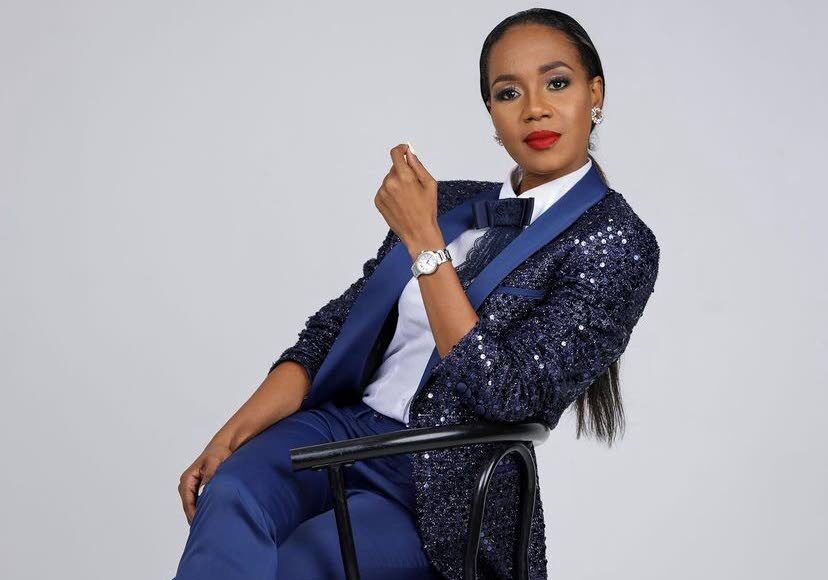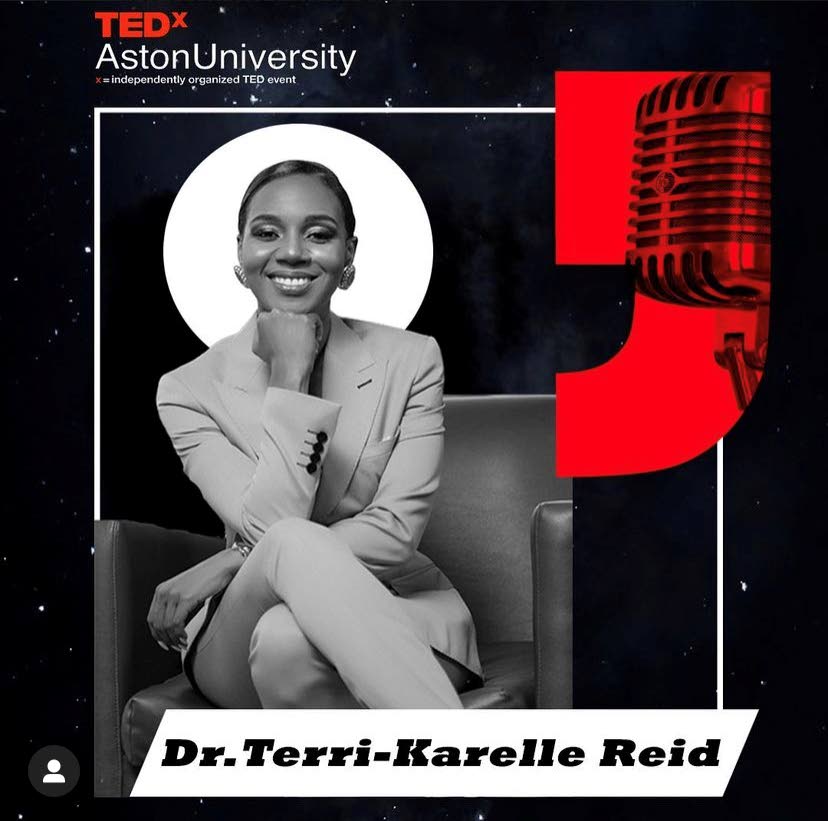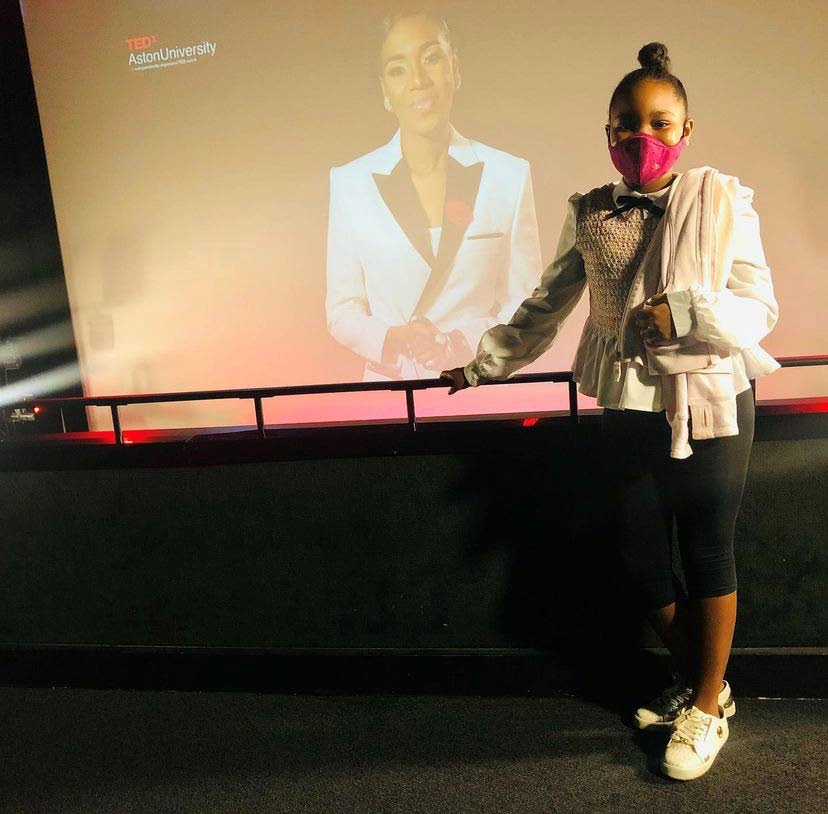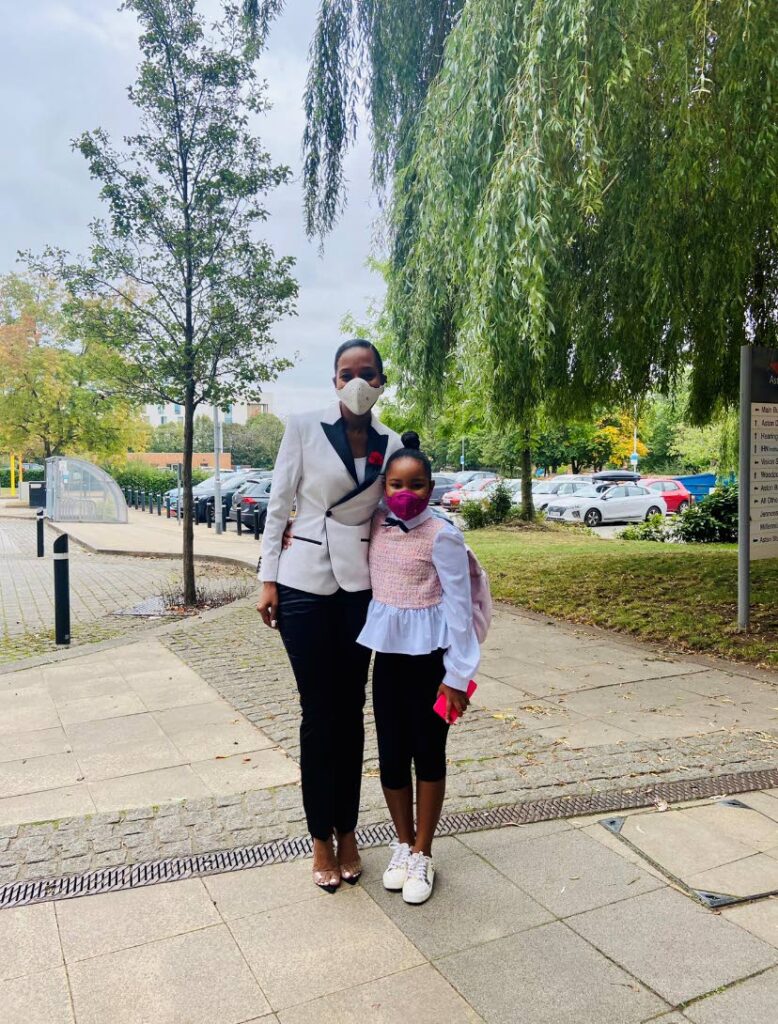Dr Terri-Karelle Reid: Jamaican media personality talks parenting in information age

The TEDx stage with its bright lights, dark background and intimate setting has become revered across the globe as a reference point from which people give and receive compelling, life-altering stories from experts in respective fields.
Styled after TED Talks which are styled for global audiences, TEDx talks are designed for smaller, local audiences and are organised independently by regional groups, with speakers and topics tailored specifically to the community in which the event takes place.
Jamaican events host, TV presenter, public speaker and podcast host Dr Terri-Karelle Reid last September joined the league of local, region and international powerhouses to have graced a TEDx stage, leaving a tsunami of conversation and inspiration in her wake. Since being posted on YouTube three weeks ago, the video of her presentation, has received over 40,000 views.
Reid, 40, who gathers her growing number of over 284,000 followers on Instagram around a proverbial campfire, shares both professional and intimate moments online.
It is those intimate moments, specifically those shared with her nine-year-old daughter Naima-Kourtnae that saw her being invited to share bits of her experience raising a girl in this age of technology, and everything it includes, on the TEDx stage at Aston University – one of the UK's top universities.
It is her practical and seemingly candid way of communicating with her daughter on issues from having a relationship with her body, child abuse and sexuality that has resulted in her contributing to a revolution in how information can be shared with children.
Reid believes these approaches can help spare children much of the challenges and growing pains experienced by previous generations, from whom life-altering information was withheld by parents for fear of overexposing their children to the realities of the world.

"Surreal is the word that sums it up. Receiving the invitation was surreal to the point where I thought it was a scam. I looked at every detail of the email from top to bottom because it was shock and awe. I think I felt that way because content from TEDx is consumed by millions of people all over the world, every day. It is said their videos get more hits that Disney World," she told WMN.
Reid, who is also a trained veterinarian, said she never imagined herself on that stage – despite being told by many she would be fit to share some bit of her story with the world.
"When I got the invitation I first asked, Why me? But then I started asking myself, Why not me?"
Even though she's danced since childhood and later went on to represent Jamaica at the Miss World pageant in 2005, Reid said it was intimidating, but she also saw it as a call to take on a new challenge, “because opportunities don’t come along until we are ready, even if we don’t feel ready in the moment.”
"It went from intimidating, to doable, to challenging, and then I just decided to turn it into an adventure. It reminded me I am capable of doing so much more when I am intentional."
It was in her quiet time, outside the realms of being a presenter, media personality and mother that she sat and edited her speech to a T – trading out some words, removing some expressions. She unearthed social and cultural issues and attitudes – sharing specific bits of her experience as a child juxtaposed with the experience she seeks to create for her daughter who she intends to help mould into a global citizen.
Reid confronted some of her past experiences and discussed some of her previously held biases and concepts that she saw necessary for re-evaluation, and then using those positive changes as a guiding light in motherhood.
Asked about the process of planning her talk, she said the most challenging part was that she was expected to provide a number of drafts leading up to the date of presentation. Being a free-thinking speaker with a deeply critical mind, preparing a draft was no easy feat for her.

With limited time to rehearse, due to her fast-paced life, which includes myriad media and public presentations, meetings, motherhood and self-care, Reid rose to the occasion to deliver a presentation to which she has received heartfelt responses from people across the globe, including the Jamaican and Caribbean diaspora, sharing how her speech opened a door in their consciousness on new parenting approaches.
She considered the one thing she wanted to be people's biggest takeaway: “How do we, as parents, as adults, share empathy and autonomy with our children in such a way that it helps them to realise their fullest potential? What does that mean for current and future generations? For me... tapping into the fullest potential of my daughter means strengthening areas outside her academic output... I have to challenge some of my own social and cultural upbringing to fortify her self awareness."
The hope Reid shared in her presentation is a world where parents taught their children to create boundaries, respect other people's boundaries and exercise their right to say no without guilt or fear.
“I keep thinking, if we taught our children these things at an earlier age, how different would this world be? How they view themselves, their roles in society and how they treat others. We have a choice. We can either perpetuate the same cycles that can potentially harm generations, or we can choose to have healthy, holistic conversations that serve as valuable insight to empower our children."
In her introspective talk, Reid also spoke about the importance of teaching her daughter empathy, which means she teaches her daughter to imagine life through the eyes of others whose life circumstances differ from hers. Through empathy, she said the domino effect of this is that her daughter has effortlessly become an advocate for inclusion of those who are different, such as the differently-abled.
In reinforcing Naima-Kourtnae's autonomy, Reid said she also ensures her daughter knows it is okay to say no without feeling badly about setting boundaries – emphasising that declaring one's power to say no or to give consent, in simple childhood interactions like how often should children share their toys, is a fundamental right.
Asked if she thinks enough parents practise these strategies that many may consider new age, Reid said no.

“I think things are changing but I think it also hard to challenge socio-cultural habits and beliefs. For example, the conversation about menstruation, I have never injected conversations with her about her body with guilt or shame. But I remember grown women asking how I could comfortably have this conversation with my daughter at such a young age.
"But when is the right time to have that conversation with her? When she starts menstruating early, at maybe age eight and she thinks she’s dying? There are still many parents relying on the church, school and the broader community to have these conversations with children because many of us were taught to be ashamed of our bodies.”
Reid said she has received waves of heartwarming responses to her presentation. She said mothers have reached out saying it inspired them to have these conversations with their children, and schools have reached out to tell her they have shared it with students.
“I am happy the presentation is now being used as an icebreaker to create space for more of these conversations with children.”
Listen to the full conversation between Dr Terri-Karelle Reid and WMN's Marshelle Haseley and view Reid’s full TEDx talk at newsday.co.tt


Comments
"Dr Terri-Karelle Reid: Jamaican media personality talks parenting in information age"